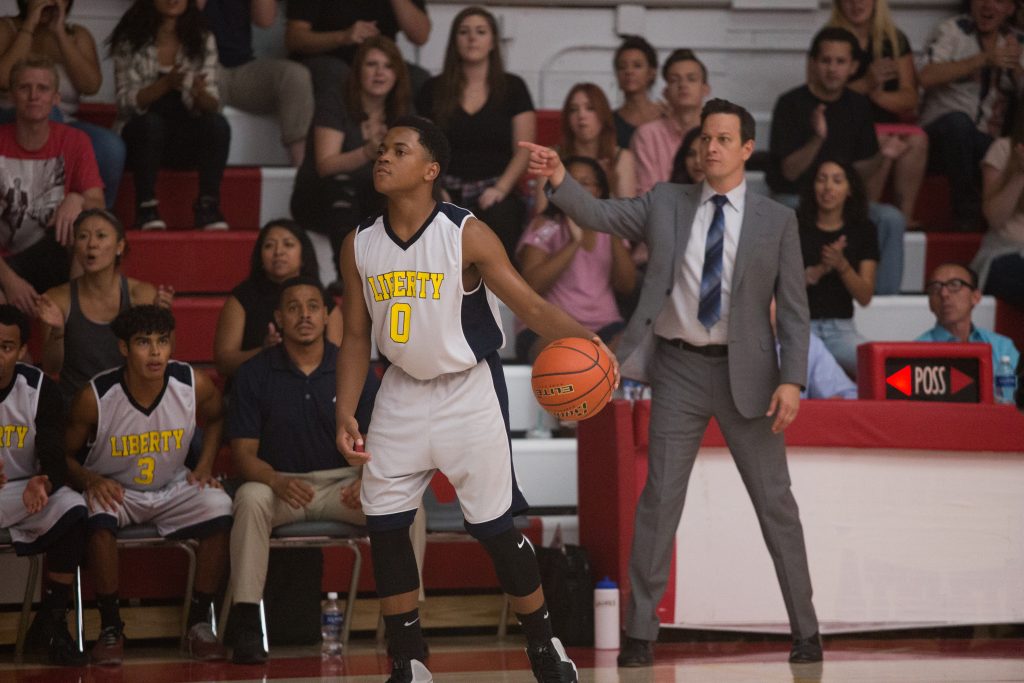
The characters are wonderfully developed and genuine, the dialogue is purposeful and descriptive, and the storyline focuses on the important yet hardly explored exploitation of young athletes in school systems.
However, the story only skims the surface on the complexities that go into the Amateur Competition Principle. It doesn’t show us the serious straits families often get into in poor neighborhoods and just how that pressure manifests. Joining the athletic racket doesn’t merely boil down to a perceptive 14-year-old who doesn’t want his parents to argue over finances. Although, it can certainly grow from that.
More explicitly, it’s a child struggling with hunger because his parents can’t afford to put food on the table after working 15-hour shifts. It’s about a child seeing his parents downtrodden by the system, mixed with social and environmental conditions, and being told this sport is all he has to survive.
And in the back of his head, he realizes his body won’t last forever. So, the accepted payments become the family’s own way of exploiting a system that tries to exploit them.
We see glimpses of these struggles in the narrative. His dad must work 2-shifts to make their payments. The family fights to make ends meet, etc. However, they hardly delve into how serious these situations can be.
We simply see Terron (Michael Rainey Jr.) walk into a room and see his dad sleeping on his bed. Later, he stumbles on his father yelling at their superintendent. And you just happen to see his mother’s eyes lidded with exhaustion while she tries to comfort him.
Because this issue is deeply embedded in low-income areas, and many times it reveals far more dire situations, the narrative misses an opportunity to get its audience emotionally invested in the family by skimming the hard parts.
Don’t get me wrong. I don’t believe all black narratives must be derived from hard-set, generational pain, and strife. Nevertheless, when you explore a gritty situation like this, something that has hardly been examined in mainstream media, then you must take the time to scrutinize the complexities of the institution and the scenarios that prompt students to allow schools to pay for their parents’ rent.
Amateur would’ve benefited from a story set in college where the stakes are even higher, the NBA is just a few years away, and Terron’s learning disorder would actually affect whether or not he could earn money to pay for his own food and needs while also paying to feed his family. That way, it would’ve been easier to add more weight to the inciting factors.
Then we could circle back to the family once he lost the ability to play in the amateur league and further excavate the problems that inspired his father to sign him over like property.
And who knows, instead of this immediate fix-all idea Terron brings to Coach Gaines, they could’ve first tried their hand in court to turn over the Amateur League Principle. Then the story would’ve at least offered solutions for creating true change in the country.
Seeing the justice system and the school district who were supposed to take care of him, but were instead blind with greed, juxtaposed against the pain Terron’s family went through just to survive the next bill cycle would’ve been incredibly impactful.
Assuming that avenue didn’t work, we could go to a viable plan B: the entire Forte family picking up and moving to a different country. By presenting directly to ad people, Amateur could’ve created more plot momentum by then exploring how Terron would pitch his idea to a room full of big corporations who deem him as chattel and notoriously eats kids like him for breakfast.
Do you see how this trend would work? It would show how student-athletes are cornered at every turn to stay cogs in a machine that makes the NCAA and high school charter schools richer, while the boys who are sacrificing their bodies get dust.
We need to see these angles. We need to see and examine the many facets that create this problem.
However, all we witness is Terron’s two-minute temper tantrum, a slight mention that neither he nor his coach are allowed anywhere near organized basketball, and the limo scene where he tells his parents he can make enough money to sit pretty in a different country.
I just wanted… more.
Plus, with a cast as phenomenal as the people in Amateur, such as Michael Rainey Jr., Sharon Leal, Brian White, and Josh Charles, it’s not as if they didn’t have the acting chops to cover this scale of drama and emotion.
Overall, it was a nice watch. The actors were incredible, of course. And, as I said, a lot of this script is wonderfully written. It’s just missing that extra layer. And who knows? Maybe they can fix that lack of profundity in a sequel that follows Terron as he explores what it’s like to play with grown men from a different culture with different norms.
The full movie is available on Netflix. What did you guys think of Amateur? Did you like it? Did you love it? Share your thoughts in the comments section below!
